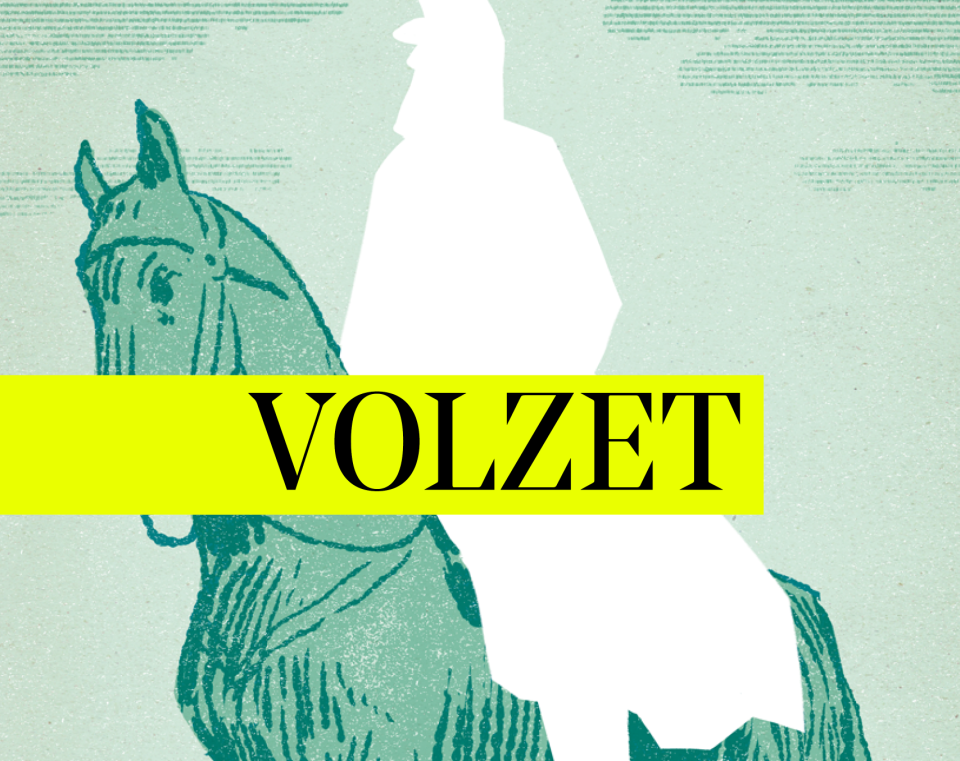VOLZET
Al wandelend reflecteren op ons koloniaal verleden
Op een publiciteitsaffiche voor Oostende anno 1887 wappert op het Casino Kursaal naast de Belgische vlag, de blauw-met-gele ster vlag van de toenmalige Leopolds Congo-Vrijstaat. Nadien werd Congo een officiële kolonie van België tot ze in 1960 onafhankelijk werd.
Tijdens deze koloniale periode wordt er via monumenten en organisaties gevlagd met “bevrijding & beschaving” en zedig gezwegen over hoe de koning en België zich via uitbuiting op een gruwelijke wijze de Congolese rijkdom toe-eigenden. Tot in het begin van de 21ste eeuw bleef die eenzijdige benadering werken, maar deze verandert.
Het is slechts sinds kort dat men deze misbruiken begint te erkennen en men zich afvraagt of deze openlijke verheerlijking in de publieke ruimte vandaag nog gepast is. Wat gisteren normaal was, is misschien vandaag niet meer aanvaardbaar. De rode draad tijdens deze wandeling is wat in Oostende direct en impliciet (soms verdwenen) naar de huidige en vroegere kolonisatie van Congo door Leopold II en België kan verwijzen.
Samen met de gidsen gaan we in dialoog over deze koloniale verwijzingen in de publieke ruimte en of deze vandaag er nog hun plaats en betekenis hebben of welke betekenis ze nog zouden kunnen krijgen. Deze wandeling kadert in het participatietraject van Stad Oostende rond de koloniale verwijzingen in de publieke ruimte.
Wil je graag meer weten over het project of mee participeren? Stuur dan een mailtje naar participatie@oostende.be.
Praktische info
- Voertaal: Nederlands
- Gidsen: Dirk Beirens en André Baert
- De wandeling eindigt opnieuw in het meeting point
- Duur: 2 uur
- De wandeling gaat ook door op zondag 2 juli
ENG
On a publicity poster for Ostend in 1887, alongside the Belgian flag, the blue and yellow star flag of Leopold's Congo Free State was flown at the Casino Kursaal. Later, Congo became an official Belgian colony until it gained independence in 1960.
During this colonial period, "liberation and civilisation" were flagged through monuments and organisations, while the exploitation by the King and Belgium to gruesomely appropriate Congolese wealth was discreetly ignored.
Until the beginning of the 21st century, this one-sided approach remained effective, but it is changing. Only recently have these abuses started to be acknowledged and there are questions about whether this overt glorification in the public space is still appropriate today. What was once normal yesterday may no longer be acceptable today.
The common thread during this walk is what in Ostend directly and implicitly (sometimes vanished) refers to the current and former colonisation of Congo by Leopold II and Belgium. Together with the guides, we will dialogue about these colonial references in the public space and whether they still have their place and meaning today, or what meaning they could still have.
This walk is part of the participation project, by the City of Ostend, on colonial references in the public space. Would you like to learn more about the project or participate? Then send an email to participation@oostende.be.
PRACTICAL INFO
- Spoken language: Dutch
- Duration: 2 hours


